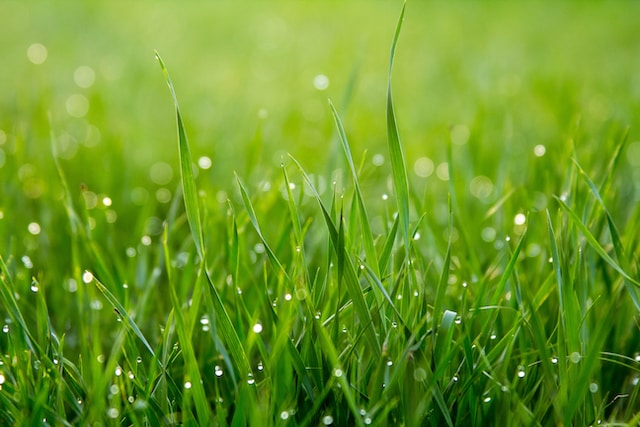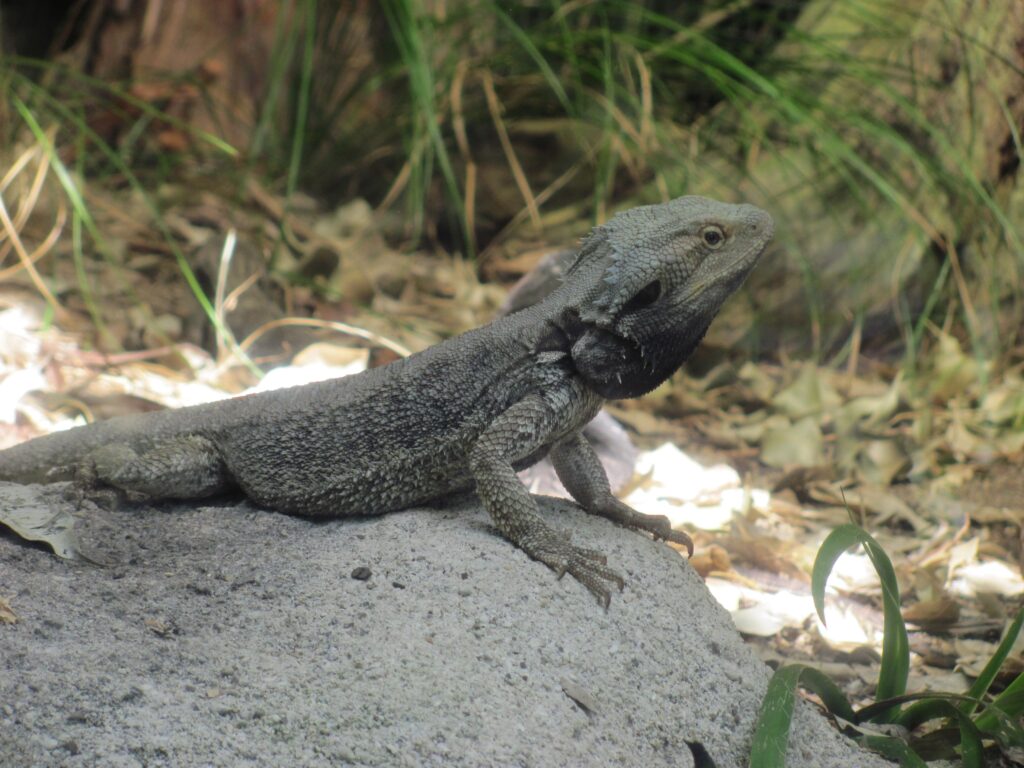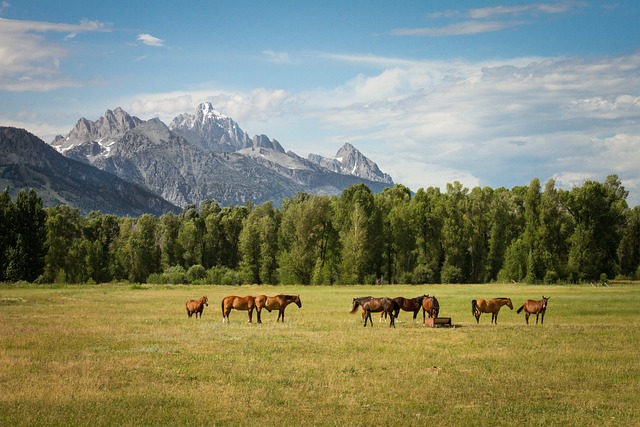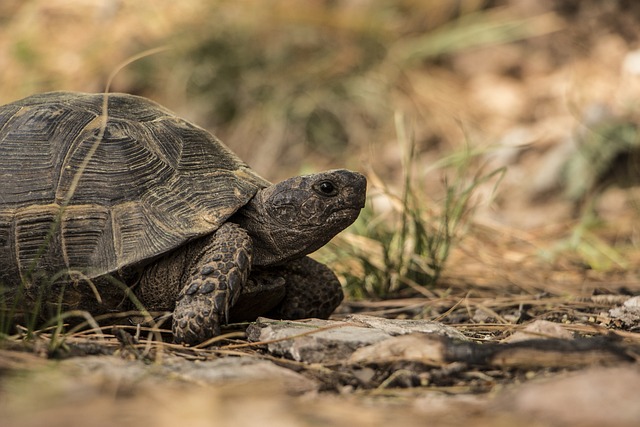Can Bearded Dragons Eat Grass?
The quick answer – yes, bearded dragons can eat grass. However, this comes with a caveat: only in moderation and not often. Why? Bearded dragons have a tough time digesting grass. Their diet should ideally be kept at 80% insects and 20% other plant matter.
If you recently fed your bearded dragon grass or caught them nibbling away on grass, don’t panic. Bearded dragons can eat grass, just not in excess.
Read on to learn about grass’s nutritional value, why bearded dragons can’t have excessive grass, how to make it safer for your little pet to eat, and some commonly asked questions!
- Can Bearded Dragons Eat Grass?
- Is Grass Good for Bearded Dragons?
- Do Bearded Dragons Eat Grass in The Wild?
- How often should you give your bearded dragon grass?
- Are there potential risks associated with feeding bearded dragons grass?
- How Can You Make it Safer for Your Bearded Dragon to Eat Grass?
- Do bearded dragons like grass?
- Recap:
- Frequently Asked Questions (FAQ):
- What fruits and vegetables can bearded dragons eat? A non-exhaustive list:
- What fruits and vegetables can bearded dragons not eat? A non-exhaustive list of foods to avoid:
- Grass for Bearded Dragons: Nutritional Information:
Grass for Bearded Dragons: Nutritional Information:
Grass is a plant, so why don’t humans and many other animals eat it regularly? Doctors recommend we eat lots of plants and vegetables, so why exactly isn’t it a part of most of our diets?

In actuality, grass (especially wild grass) does have nutrients – it has vitamins A, C, and some B vitamins, as well as several minerals. However, it also contains something called lignin, and a lot of it. Humans can process lignin in small qualities, but grass contains so much that it usually passes through without giving any nutrients. Meanwhile, other animals like cows, with their famed multiple stomachs, are able to eat grass and thrive on it.
Is Grass Good for Bearded Dragons?
Although many animals can thrive on diets consisting largely of grass (see a full list of animals that eat grass here), for many animals including hamsters and humans, grass isn’t a viable source of sustenance.
Why? This is just how bearded dragon’s bodies are built. They have not evolved to break down and extract nutrients from grass the way other animals, like deer or rabbits, can.
Do Bearded Dragons Eat Grass in The Wild?
Not if they can help it. Since bearded dragons don’t extract much nutritional value from grass, they don’t often eat it, even in the wild. Instead, they opt for insects or other plant matter, which their bodies can break down and they find delicious.
Perhaps they’ve evolved to not enjoy the taste of grass, given it doesn’t provide their bodies with sustenance. As well, they aren’t used to the grass that’s commonly bred around homes. Grass in the wild is very different, it isn’t engineered for attractiveness and therefore, has even more nutrients. Even given this, bearded dragons usually avoid eating grass, whether in the wild or in a domestic home.
How often should you give your bearded dragon grass?
Like all things, in moderation. If you do feed your bearded dragon grass, make sure to wash it thoroughly, especially if you suspect pesticides or other harmful chemicals to be present.
However, it shouldn’t be a staple in their diet. As stated before, always be sure your little pal is getting a balanced diet of insects and other plants and fruits (follow the 80/20 rule here).
Are there potential risks associated with feeding bearded dragons grass?
Yes. If bearded dragons have too much grass instead of a balanced diet, they’ll become unwell. They need the nutrients from insects and non-plant matter to thrive.
If this happens, cease giving them grass at once and give them a diet of insect mix and other plants and fruits. This is Amazon’s top-selling bearded dragon food mix and will have all the nutrients your little pet needs.
If your bearded dragon is having a severe adverse reaction to eating grass and it doesn’t stop after they’re back on normal food, take them to see a vet.
How Can You Make it Safer for Your Bearded Dragon to Eat Grass?
- Wash the grass thoroughly.
- If you know the grass has pesticides or herbicides, do not feed it to your bearded dragon.
- Do not feed them grass that has mold or fungus.
Do bearded dragons like grass?
Honestly, no. It doesn’t taste good to them and they prefer insects. Which is good, because they’ll likely avoid eating too much grass. Their bodies are intelligent and know what they need! Recap: Can
Recap:
- Bearded dragons can eat grass, but not as a nutrient replacement.
- There’s no real nutritional value of grass to bearded dragons.
- Make sure to wash your grass thoroughly if you feed it to them.
- Keep them on an 80/20 diet of insect mix and other other vegetables and fruit.
Frequently Asked Questions (FAQ):
What fruits and vegetables can bearded dragons eat? A non-exhaustive list:
Besides bugs like cockroaches and crickets, here are some foods your bearded dragon will love:
- Apples
- Green beans
- Kale
- Mango
- Melons
- Peaches
- Peas
- Sweet potatoes
Most fruits and vegetables are fine, but always be sure to wash them thoroughly beforehand.
What fruits and vegetables can bearded dragons not eat? A non-exhaustive list of foods to avoid:
- Lightning bugs (they are poisonous for your beardie)
- Lettuce (they’ll be fine but it doesn’t have a great nutritional profile)
- Avocados
- Spinach (This has to do with how their bodies break down calcium)
If you have any questions, feel free to email me!
Related articles:



